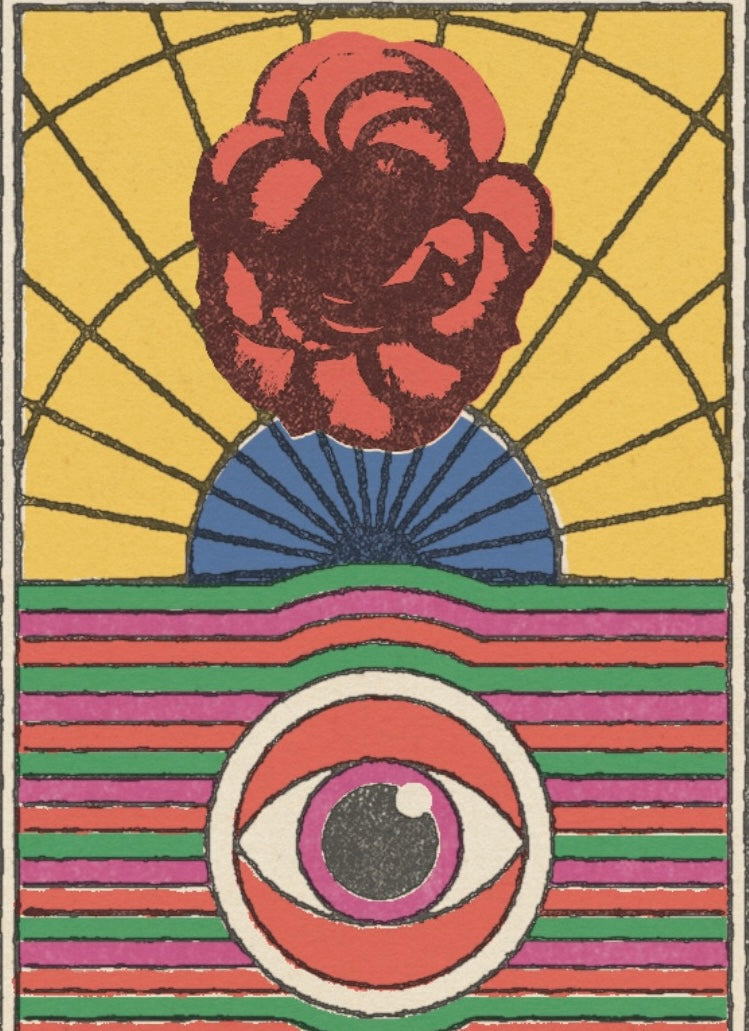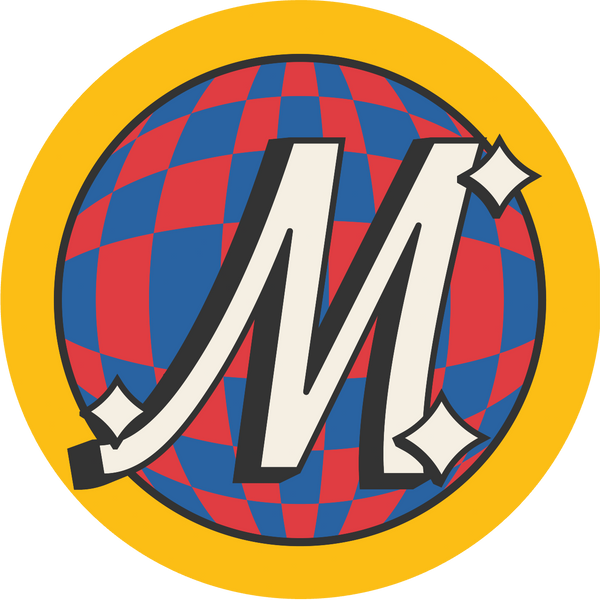
Exploring the Winterland opener from 10/16/74
Share
The first of the "final" five shows before what would ultimately be a year-and-a-half hiatus plays like a microcosm of the band's psyche at this point in history; the songs are sometimes ragged, often poignant, and occasionally transcendent versions that look reflectively back at their growth from primal, psychedelic standard-bearers through the Americana-drenched band of the early 70s and forward to the arena-packing steam engine that would take them through the back half of the decade.
The first set takes a while to kick into gear, a feeling accentuated by the available archive recordings, which wobble through the opening four songs with an audience patch that sounds like it's taken from a recorder in someone's shirt pocket at the back of the hall. As a result, the Bertha opener provides ample evidence of the crowd's excitement but is swallowed up musically by the arm's length remove of the recording quality. By the time the soundboard audio kicks on, at a peak in Deal, listeners have earned the fidelity improvement.
The Miller soundboard is clean and clear, favoring Phil's bass front and center in the mix. Keith's piano playing shines on this recording, and his embellishments in this show stand out in the right channel. Bobby's rhythm is hard to parse; the Dusborne Matrix brings more dynamism to the interplay between the band's two guitarists and a room-temperature mix that effectively serves the contributions of all players.
The first set gets off to a sluggish start, a band easing into a long upcoming week of shows, searching for some ineffable "thing" to elevate the playing of songs featured heavily throughout the long touring year of '74. Highlights include the final Me and Bobby McGee (excluding the few Joan Baez-fronted versions played at an '80s benefit show), an exceptionally hot Cumberland Blues, and an inspired 30+ minute Playing in the Band that caps the set. These punctuate relatively standard versions of It Must Have Been the Roses, Scarlet Begonias, and a lethargic run through Tennesse Jed.
Playin' was a harbinger of the transcendent jam to come out of the setbreak.
This Winterland run would feature three distinct approaches to Eyes of the World. The version on 10/16 comes out of an extended jam from the setbreak Seastones (Phil and Ned Lagin test the Wall of Sound before Jerry wanders onstage to join the aural fireworks) and a poignant Wharf Rat that transitions into Eyes with several minutes of almost unaccompanied playing from Jerry. Both Phil and Keith carry substantial sections of playing, and Ned's keyboard provides compelling depth through the early transitions, but Jerry playing unadorned is something less frequently heard through Dead history. The 80-plus minute suite might be the improvisational highlight of the entire run. Other moments may reach higher peaks, but few come from further afield.
The miracle of the music is that it's all on record. Close re-listening highlights not only the jams, but a beautiful Ship of Fools that bridges the second set's two significant song suites and the first-set Cumberland Blues that doesn't expand outward as much as adds layers on layers throughout a blistering seven-minute run-time.
In revisiting this show with 50 years of additional context, one can hear a road-weary band somewhat restless with its catalog. Nevertheless, the highlights here are absorbing, with a few novel approaches peeking through the early fog.
The first set takes a while to kick into gear, a feeling accentuated by the available archive recordings, which wobble through the opening four songs with an audience patch that sounds like it's taken from a recorder in someone's shirt pocket at the back of the hall. As a result, the Bertha opener provides ample evidence of the crowd's excitement but is swallowed up musically by the arm's length remove of the recording quality. By the time the soundboard audio kicks on, at a peak in Deal, listeners have earned the fidelity improvement.
The Miller soundboard is clean and clear, favoring Phil's bass front and center in the mix. Keith's piano playing shines on this recording, and his embellishments in this show stand out in the right channel. Bobby's rhythm is hard to parse; the Dusborne Matrix brings more dynamism to the interplay between the band's two guitarists and a room-temperature mix that effectively serves the contributions of all players.
The first set gets off to a sluggish start, a band easing into a long upcoming week of shows, searching for some ineffable "thing" to elevate the playing of songs featured heavily throughout the long touring year of '74. Highlights include the final Me and Bobby McGee (excluding the few Joan Baez-fronted versions played at an '80s benefit show), an exceptionally hot Cumberland Blues, and an inspired 30+ minute Playing in the Band that caps the set. These punctuate relatively standard versions of It Must Have Been the Roses, Scarlet Begonias, and a lethargic run through Tennesse Jed.
Playin' was a harbinger of the transcendent jam to come out of the setbreak.
This Winterland run would feature three distinct approaches to Eyes of the World. The version on 10/16 comes out of an extended jam from the setbreak Seastones (Phil and Ned Lagin test the Wall of Sound before Jerry wanders onstage to join the aural fireworks) and a poignant Wharf Rat that transitions into Eyes with several minutes of almost unaccompanied playing from Jerry. Both Phil and Keith carry substantial sections of playing, and Ned's keyboard provides compelling depth through the early transitions, but Jerry playing unadorned is something less frequently heard through Dead history. The 80-plus minute suite might be the improvisational highlight of the entire run. Other moments may reach higher peaks, but few come from further afield.
The miracle of the music is that it's all on record. Close re-listening highlights not only the jams, but a beautiful Ship of Fools that bridges the second set's two significant song suites and the first-set Cumberland Blues that doesn't expand outward as much as adds layers on layers throughout a blistering seven-minute run-time.
In revisiting this show with 50 years of additional context, one can hear a road-weary band somewhat restless with its catalog. Nevertheless, the highlights here are absorbing, with a few novel approaches peeking through the early fog.
